Writing a resignation letter can be a daunting task, especially when it's for something as personal as mental health. It's essential to prioritize your well-being and communicate your reasons clearly and respectfully. In this article, we'll explore how to structure your resignation letter effectively, ensuring you express your feelings while maintaining professionalism. So, if you're ready to take the next step towards prioritizing your mental health, keep reading for some helpful tips and a sample letter!
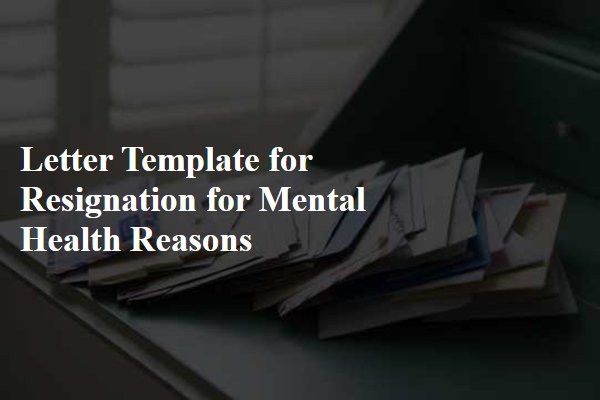
Personal Well-being Focus
Mental health concerns increasingly impact workplace dynamics, emphasizing the importance of personal well-being in professional environments. Employees may face stressors such as workload (often exceeding 40 hours per week), interpersonal conflicts, or lack of support, contributing to anxiety and depression. Organizations, such as corporations in the tech industry, must recognize signals that indicate a staff member's mental strain. Prioritizing mental health not only preserves individual wellness but also benefits overall productivity. By promoting a culture that embraces mental well-being, businesses may increase employee satisfaction and retention, ultimately cultivating a more resilient workforce.
Professional Gratitude
Resigning from a position due to mental health reasons can be a challenging yet necessary decision for one's well-being. Recognizing the impact of work-related stressors on mental health, an individual may choose to prioritize self-care and seek a healthier environment. Expressing professional gratitude remains vital, as it acknowledges support received from colleagues and management during one's tenure at the company. An employee may wish to highlight specific experiences, projects, or mentorships that fostered personal growth, making the departure feel less abrupt while maintaining a positive relationship for future opportunities. Such a thoughtful approach ensures that the decision comes across as a personal necessity rather than a disregard for professional commitments.
Notice Period
Mental health conditions can significantly impact an individual's overall well-being and productivity in the workplace. The decision to resign, particularly for mental health reasons, often arises after careful consideration and understanding of the need for self-care and recovery. By providing a notice period--typically two weeks or more--it allows for a smoother transition for both the employee and the employer, facilitating the handover of responsibilities and the opportunity for any final projects to be completed. Properly addressing this sensitive issue also emphasizes the importance of mental health awareness and encourages open discussions about well-being in professional environments, ultimately contributing to a more supportive workplace culture.
Offer Assistance for Transition
A resignation due to mental health reasons can be a sensitive matter that requires careful consideration. Proper transition support can be crucial for both the employee and employer. When resigning, it is important to communicate the intention clearly while offering to assist during the transition period. This could involve knowledge transfer, bringing a temporary replacement up to speed, or ensuring that ongoing projects are left in a manageable state. Providing specific details about current tasks, deadlines, and key contacts can facilitate a smoother handover. By clarifying availability during the transition phase, the employee demonstrates professionalism and consideration for the team's continuity and success.
Positive Closing Remarks
Navigating mental health challenges often necessitates making difficult decisions, such as resigning from a position for well-being. A resignation letter tailored to this situation underscores the importance of prioritizing personal health. Indicating appreciation for opportunities received, the impact of positive relationships with colleagues and supervisors, and acknowledging professional growth plays a vital role in the message. Clearly articulating a commitment to a smooth transition can leave the door open for potential future interactions or collaborations in a different capacity. Leaving on good terms emphasizes professionalism despite personal struggles, creating an environment of mutual respect.

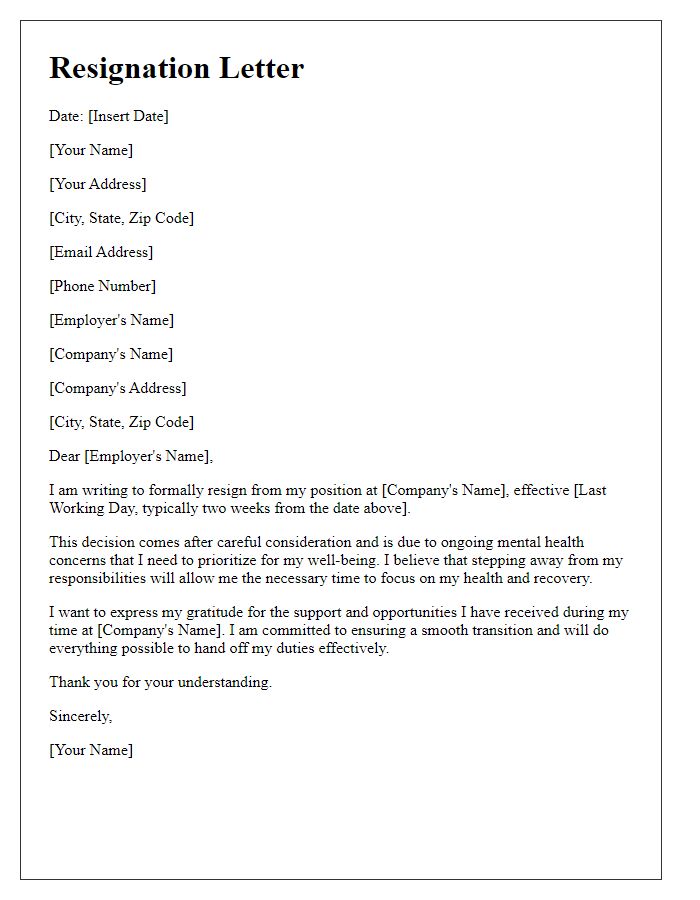
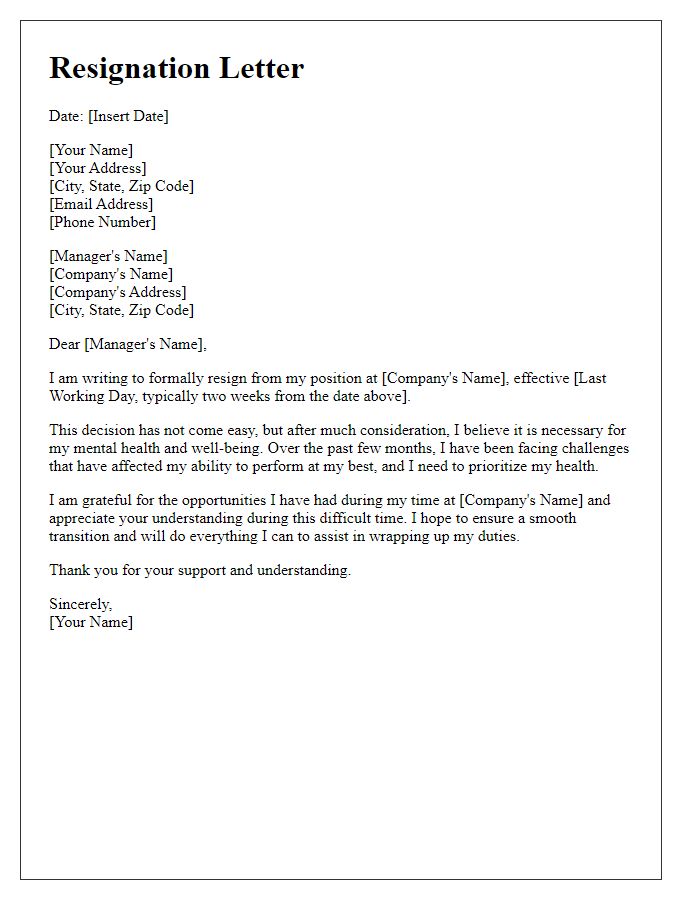
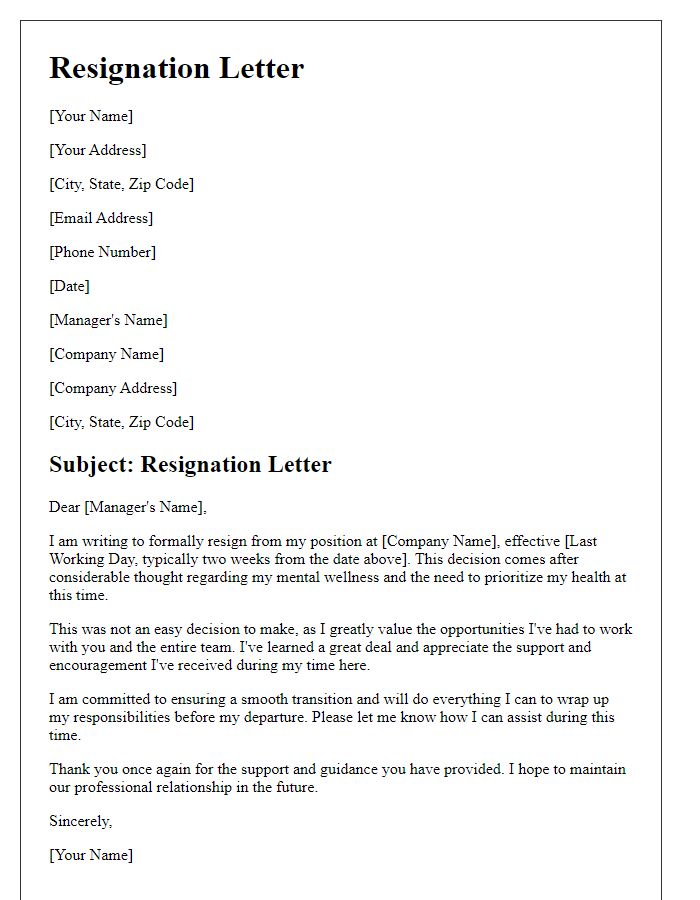
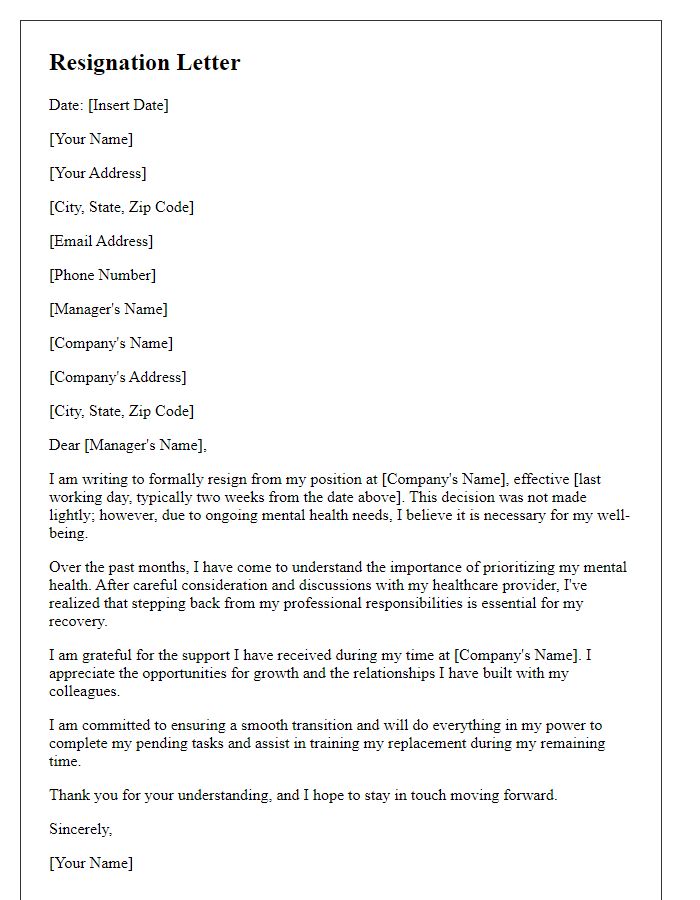
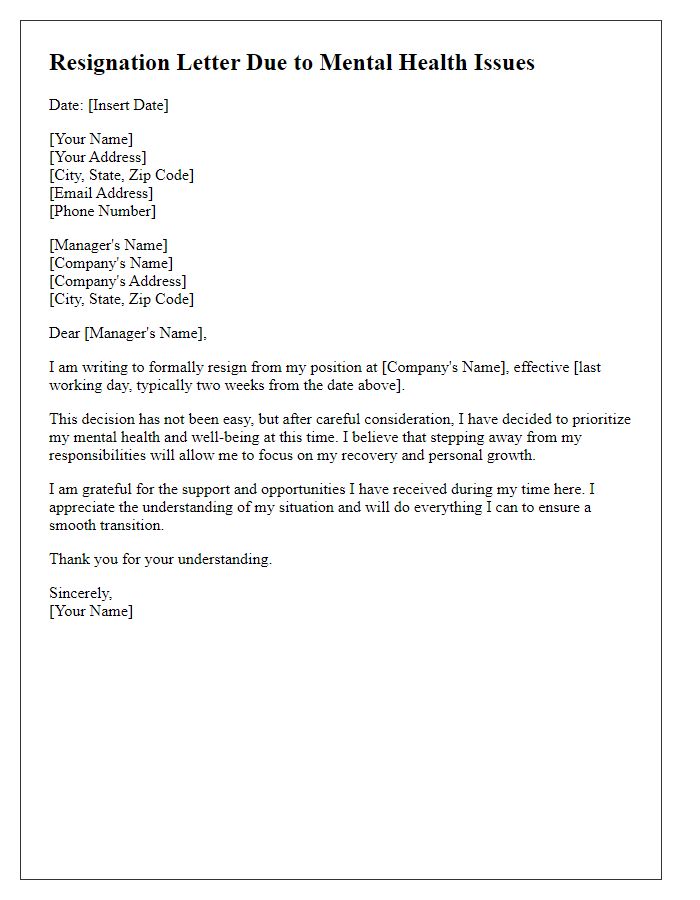
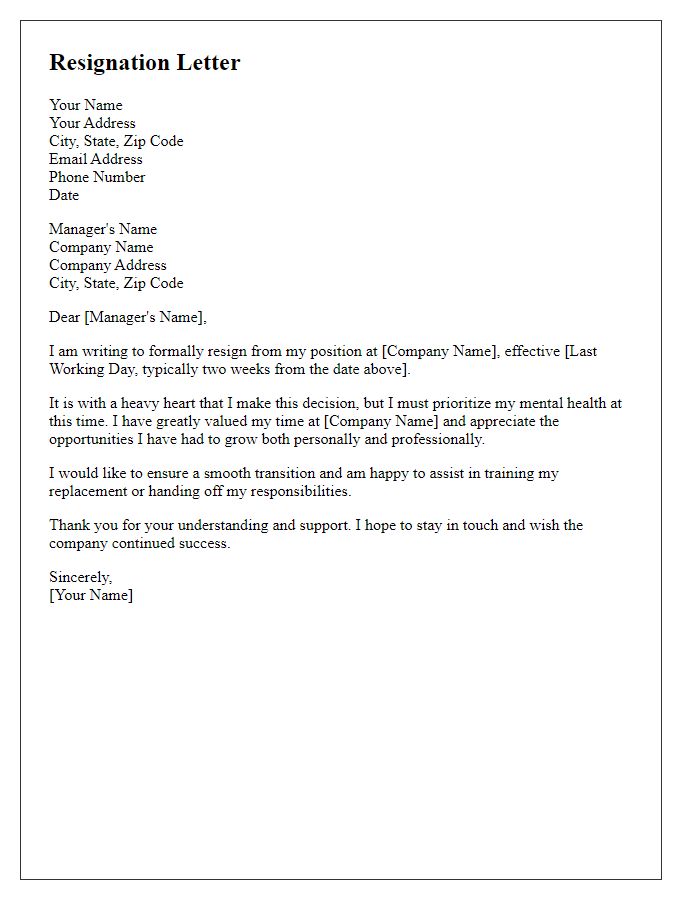
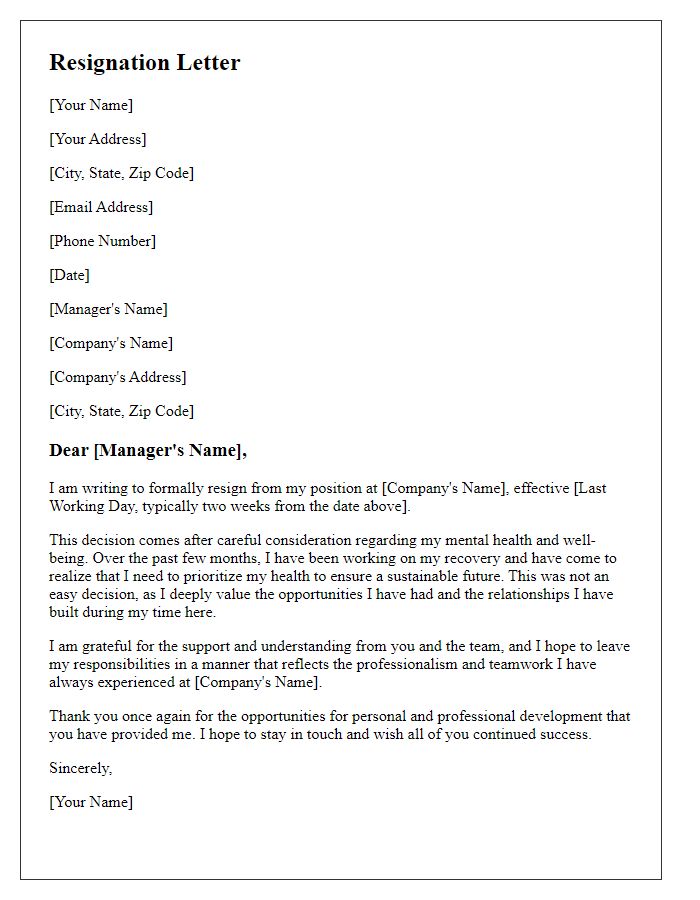
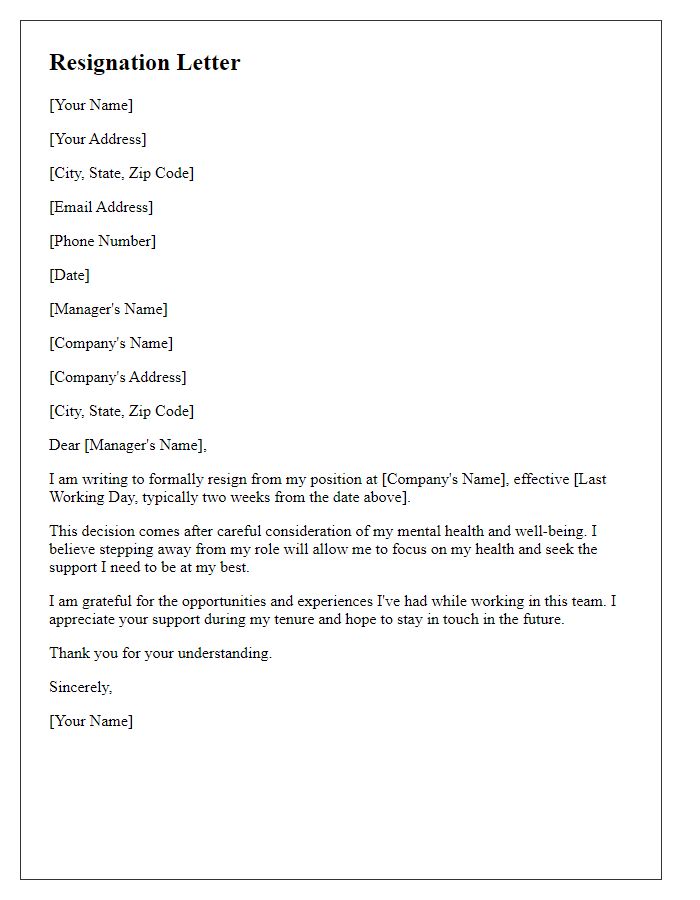
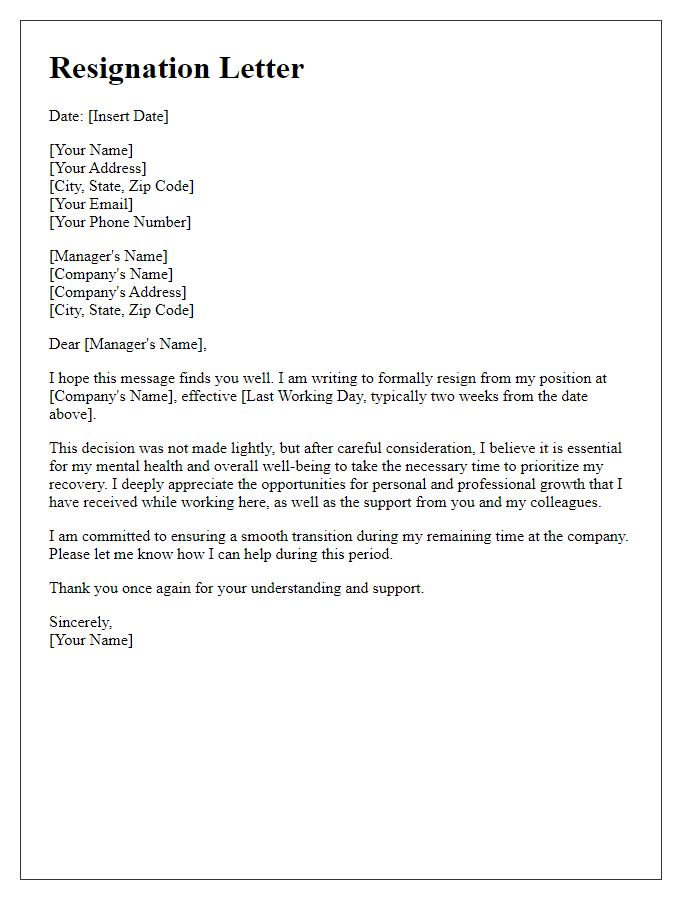
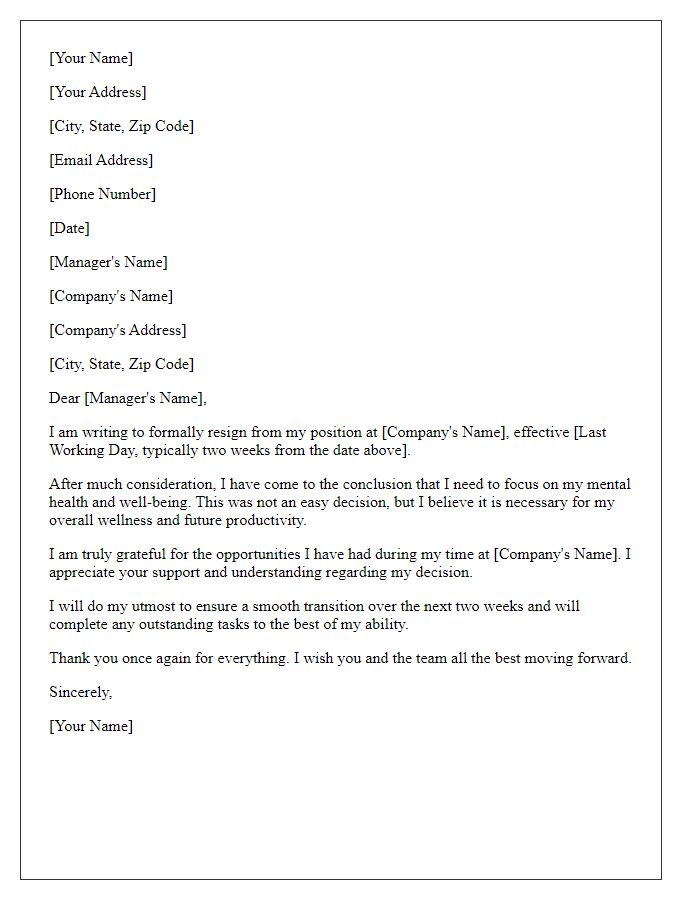


Comments